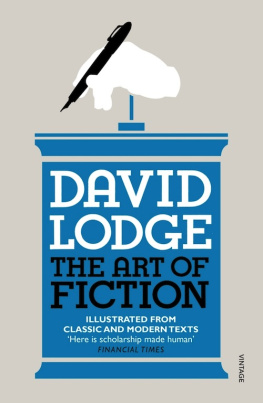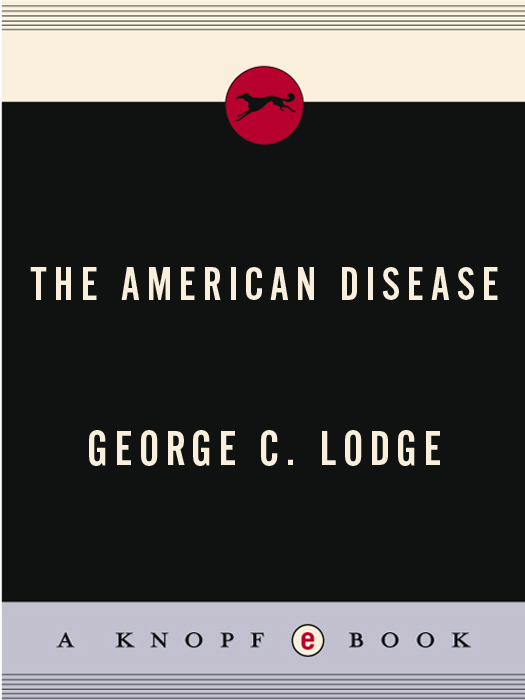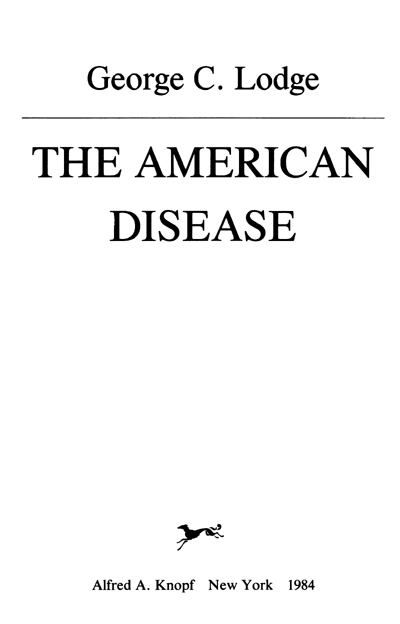George C. Lodge - The American Disease: Why the American economic system is faltering . . . and how the trend can be changed with a minimum of crisis
Here you can read online George C. Lodge - The American Disease: Why the American economic system is faltering . . . and how the trend can be changed with a minimum of crisis full text of the book (entire story) in english for free. Download pdf and epub, get meaning, cover and reviews about this ebook. year: 2013, publisher: Knopf Doubleday Publishing Group, genre: Politics. Description of the work, (preface) as well as reviews are available. Best literature library LitArk.com created for fans of good reading and offers a wide selection of genres:
Romance novel
Science fiction
Adventure
Detective
Science
History
Home and family
Prose
Art
Politics
Computer
Non-fiction
Religion
Business
Children
Humor
Choose a favorite category and find really read worthwhile books. Enjoy immersion in the world of imagination, feel the emotions of the characters or learn something new for yourself, make an fascinating discovery.

- Book:The American Disease: Why the American economic system is faltering . . . and how the trend can be changed with a minimum of crisis
- Author:
- Publisher:Knopf Doubleday Publishing Group
- Genre:
- Year:2013
- Rating:5 / 5
- Favourites:Add to favourites
- Your mark:
The American Disease: Why the American economic system is faltering . . . and how the trend can be changed with a minimum of crisis: summary, description and annotation
We offer to read an annotation, description, summary or preface (depends on what the author of the book "The American Disease: Why the American economic system is faltering . . . and how the trend can be changed with a minimum of crisis" wrote himself). If you haven't found the necessary information about the book — write in the comments, we will try to find it.
Lodge begins by defining the disease through its symptoms: failing industries, stubborn unemployment, lagging economic growth, stagnant productivity, overseas competition, focus on short-term financial gain, and, perhaps most telling, the pervasive feeling among Americans that their land of plenty has become a land of want. He examines the gradually changing roles and relationships between government, great corporations, and trade unions that are nevertheless obscure by traditional and detrimental assumptions, distrust, and a set of ideologies that are increasingly inefficient, ineffective, inconsistent, and irrelevant. And he finds the incoherence of American industrial policy exemplified by the fact the we preach the old virtues of free trade and the sanctity of the market while in actuality we pursue a strategyincluding tax incentives and trade subsidiesthe misshapes the free market.
Based on interviews with more than 150 leaders of the nations institutions, The American Disease goes beyond diagnosis to offer logical and feasible proposals to cure this dangerous condition. Lodge suggests, for example, that the office of the United States Trade Representative be expanded and strengthened to deal with the growing pressure for protection against imports and with the confusion among our trading partners. He shows why business and labor must work together more closely in a non-adversarial way with federal and local government to determine community needs. He explains why Washington will be forced to direct the future of electric power in America, rather than leave the decisions to fifty different sets of state regulators. And he makes a number of recommendations to alter the ways in which corporations manage themselves and deal with government, and to reduce the social and economic costs that are implicit in these changes.
George C. Lodge believes that recovery from our institutional ailments is possible, and this timely and perceptive book offers a resoundingly rational course toward that crucial goal.
George C. Lodge: author's other books
Who wrote The American Disease: Why the American economic system is faltering . . . and how the trend can be changed with a minimum of crisis? Find out the surname, the name of the author of the book and a list of all author's works by series.






